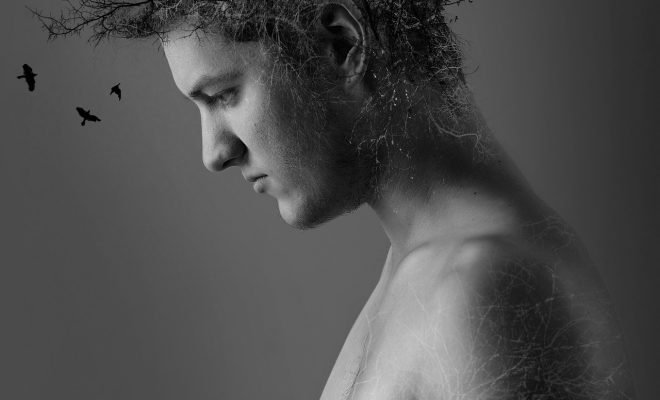Those Whom the Gods Love

- The Day the King Died
- Family Ties Revisited
- Those Whom the Gods Love
Shashi has been an inpatient at the All-India Institute of Medical Sciences for the last several months. Her mom, my paternal aunt, is her caretaker. Auntie stays with her day and night at the hospital, sleeping in a chair. She faces immense coercion from the staff to leave with her child, but she refuses to budge. She has no resources to hire a caretaker for the invalid nor replicate the healthcare facilities and equipment. Her two-room apartment is tiny with barely any legroom.
My mother visits Delhi and her first stop is to see her lovely niece at the medical center. She shares a close relationship with her. During her school years, Shashi returns full of stories of the day’s events. Auntie is bitter her education stops after the sixth grade, and she dislikes such reminders. Frequently, she calls my mom with a “Kumari, can you call her—she is not letting me get dinner going?” At Mom’s beckoning, Shashi scampers up the stairs, two steps at a time. Mummy’s snacks fuel their laughter at the retelling of interactions with friends and teachers at school. They enjoy their afternoon nattering, and a special connection develops between them. At times when mom cooks something special, she saves a helping for her favorite friend, who relishes her culinary forays.
Madhu, Auntie’s youngest, is encountering huge problems. She is anchorless and adrift, and lonely. The unfriendliness of her neighbors leaves her afraid. Her older sister, Usha, is a resident at med school. She sneaks her sister several times to stay with her. A few warnings later, Usha is hesitant. Because of her fears, I invite my cousin to come live with us for a while. I share this with my husband, and he nods. Her heart leaps with delight at the happy news. Daddy’s letter to me is surprising. He mentions Madhu is not my responsibility, I should not feel duty-bound to invite her to live with me. I wonder why it’s wrong. Years earlier, Daddy and his brothers support their sister, my Kaushalya Auntie and her family, when she was in need. Why shouldn’t I do the same for her daughter? I feel hurt and let down by Dad; I need to process it.
Mummy clarifies a few months later. The villain is my Mr. Wonderful. On his visit to Bangalore, he files a complaint with my parents regarding my inviting Madhu. No mention that it is done with his knowledge and supportive act. This is not a debut of his duplicity. The marriage is rife with his arrogance and deceitful ways. It is another one of his pretenses and sly, insincere acts spelling doom for this sham marriage bliss. I drop the topic despite her painful hints. End of the marriage farce draws closer.
Madhu joins the Flying Club for lessons. It further helps her to be close to her mother and sister. The hospital is kitty-kat from the school, the other side of the multi-lane highway. She’s progressing rapidly with her flying lessons. Her solo flight is nearing and it is on schedule. Rajiv Gandhi, the Indian Prime Minister’s son, is a pilot, and an instructor at the club. Desperate to stabilize Shashi’s care, she goes to him for help. Relates the entire situation with her mother and sister, including staff pressures for eviction for her to die elsewhere. Rajiv shares his mother has a hospital visit coming up in the next few weeks. He promises to support them.
Mrs. Gandhi visits the Institute. She receives a tour of the facilities and meets with doctors, students, and a few patients. The bed side stops list includes our patient. India’s Prime Minister reaches for Shashi’s hand, holds it warmly, and addresses her as Dr. Arora. She also asks Auntie of her own well-being and receives a speechless nod from her. It’s a brief visit. That’s the end of the conversation. The gesture has made a commanding statement. It is imperative to treat the patient with respect and continue her hospital care until she dies. Amen!
Shashi endures her paralytic state for several years. As a medical professional, she knows from the start her ailment’s is a permanent vegetative state. Her only means to communicate is via unintelligible noises. Several times she pleads for euthanasia, clasping her mom’s hand. Although Auntie tries to bluff her daughter into believing she is improving, she is aware of her hopeless state.
Eight years later, Shashi dies. During her last year, she loses her appetite for food. She starves herself to death.
Bhabhiji is getting ready for bed in Kalkaji when she receives word of the passing. Early the following morning, she travels to her niece, Shashi’s mother. We must wait for our cousin, Mohinder, to arrive from Ambala, as only male relatives, a son or sibling, may perform the last rites. Nalin, the younger brother, is with his regiment’s active assignment at the border with Pakistan. As we linger, Auntie and Usha prepare to go to the morgue to bring the body back home. Bhabhiji’s early arrival allows her to join Auntie to fetch Shashi. She is insistent, the final rites, the cleansing and anointing of the body and other rituals, fall to elders, not to a “balari” (young girl) immature to understand these tasks.
Mohinder arrives before Auntie and Bhabhiji return. During their delay, I chat with Mohinder to reconnect meeting him after several years. His reluctance baffles me. During my teenage years, he visits us in Delhi. Each visit means Mohinder and I go see Hollywood movies. I doubt Ambala had a theater running these. Seeing Bhowani Junction, I recall telling Mohinder he is the spitting image of Stewart Granger We also watch the 3D movie: It Came from Outer Space. I dislike it; it terrifies me. I spend the movie watching the crowds wearing their 3D glasses, not the scary stuff on the Cinemascope screen.
I make another attempt to talk to my cousin, he gives me an unsmiling look. Suddenly, I remember he’s anxious because his father wants him to marry a friend’s daughter. Uncle Har Narain’s closest friend from the days of his youth, has two children, a boy and a girl. The families are like one, living and growing in close proximity. Uncle is fond of his friend’s children and praises each of the siblings’ achievements. The fathers wish to enhance their bond by promising a marital alliance between Mohinder and the pretty Lalita. Such pledges among friends were common those days.
Lalita’s physical condition deteriorates due to gum disease, resulting in a loss of her teeth. As a teenager, she is wearing dentures. During my solitary summer in Ambala, I meet her and her mouth has the tight, mature look of an older person. I remember going to her birthday party, enjoying her company, and find her loving by nature. When I leave Ambala, she gifts me a box of handkerchiefs with embroidery embellishment. But, since her illness, Mohinder resists the notion of marrying her.
An overheard conversation between Daddy and Mohinder comes to mind. They both fall silent as I enter the room. Later, I guess asks for my dad’s help to manage his father’s expectations. Nobody, including my father, wants to face Uncle’s wrath. Anyway, in case you are holding your breath, a glimpse of things to follow. They marry, and are happy with two kids, a boy and a girl.
The vehicle from the morgue arrives. Sucharita is on the road from Chandigarh to Delhi. Eager to pay their respects and bid farewell to Shashi, the entire neighborhood throngs the street. With folded hands and tearful eyes, the crowd approaches the flowery bier as bearers raise it from the van. Their silence fills the air with the solemn hush of prayer at the utter tragedy of a youthful life cut short. A frail, white-haired woman consoles Auntie.
“Those whom the Gods love die young. Us sinners have long unloved lives.”
At the sight of her motionless sibling, Madhu is wailing and sobbing. I pull her into a hug. At a nod from Mohinder, the pallbearers lift the bier to their shoulders. A few relatives and friends follow Auntie and the bier to the cremation grounds. The two of us stay.
Sucharita arrives from Chandigarh. She is grieving the loss of her sibling, her guiding light. Following Shashi’s footsteps, she has an MD following her name. She and her husband are specializing in ophthalmology at Chandigarh. They have been together for a year.
A couple of years earlier, Auntie asks me if I would accompany her to Chandigarh for the engagement ceremony of her daughter and Krishan. For the first time in six years, Auntie steps out of the hospital. We take the bus to Chandigarh. It is a happy occasion to meet Krishan’s family and attend the simple rituals. Returning, we overnight in Ambala at Auntie’s older brother, Uncle Sham Narain’s place. I am taken aback as I witness the frosty exchange between Auntie and her sister-in-law, my uncle’s wife. Old childhood clashes and abrasiveness have made it through the decades. Wow! The Arora clan, similar to numerous others with long unforgettable memories, excel at nurturing grudges. Our welcome for this stay is less than warm. The next morning, breakfast done, we board the bus to Delhi, and settle in our seats with a sigh of relief.
Our cousin, Pratibha (Mohinder’s sister), and her spouse graciously host Sucharita’s wedding. It is a delightful evening with the absent ones hovering in the shadows. Auntie and her son, Nalin, on a brief furlough, greet guests. Abundant smiles all around as the tall, handsome, army major and his mom welcome guests. Invariably, responses to queries on Shashi’s health are emotional. My aunt musters a somber comment on her daughter’s life, “She exists.” This is her second evening away from the hospital since Shashi fell ill. Usha is busy with her studies and is absent from the nuptials. She is furious with her mother for attending and for “abandoning” Shashi for a few hours in seven years.
The funeral group returns to a small repast, before going their separate ways. Someone has brought Auntie’s chair back from the hospital. Madhu comments to me, “After eight whole years, the chair has come back.”
Editor: Claudia Cramer









